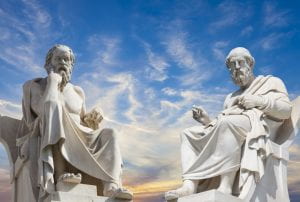
The 3 most influential thinkers of the past and how they can influence us today
Socrates
Focus on the mind and soul instead of the focus on wealth and body.
Socrates (470 bce-399 bce) said, “wealth does not bring goodness, but goodness brings wealth.” Socrates claimed that he never “taught”, but through asking questions and questioning the morals of the people. His main motivation was to seek out the questions he believed were crucial to humanity. Something like what is a virtue, what is morality.
Socrates taught through logical questioning and reasoning. Socrates’s philosophies and teachings taught “not examined life is not worth living” when we question the world and the answers that are given to us we can unearth much more than we previously thought.
Aristotle
Inventor of formal logic. He believed that separate virtues lead to true happiness.
(384 bc-322) Aristotle was most famously taught by Plato who was taught by Socrates. He was a master of many subjects including biology, ethics, metaphysics, zoology, and many others subjects. Aristotle taught primarily on biology instead of ethics like Plato, and each individual is made with patterns and development that we as human beings grow as a group.
He believed that the final product of what we become as humanity is the purpose we were designed for. He claims that there is a permanent and unchanging source of goodness in humanity and that as we strive to do overall good things we can become better people from it.
Plato
Virtue-based impressionistic conception of ethics, or the view that the highest point you can reach is the happiness of the moral being.
Plato (428-7-348-7) taught rationality through systematic and logical thinking. Plato believed that through control of the emotional reaction and balance between the three souls (he taught to reason, spirit, and appetite). Plato taught logically and in modern times what he taught would be considered science.
He taught that happiness was the highest you could get in morality and that through logical control of emotions. Similarly to Confusions, he taught that virtue in oneself brings him closer to what he believed to be the highest humanity could reach.
Resources:
